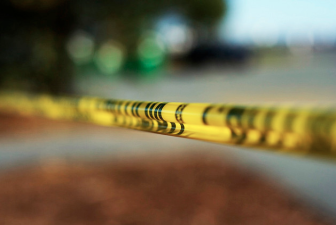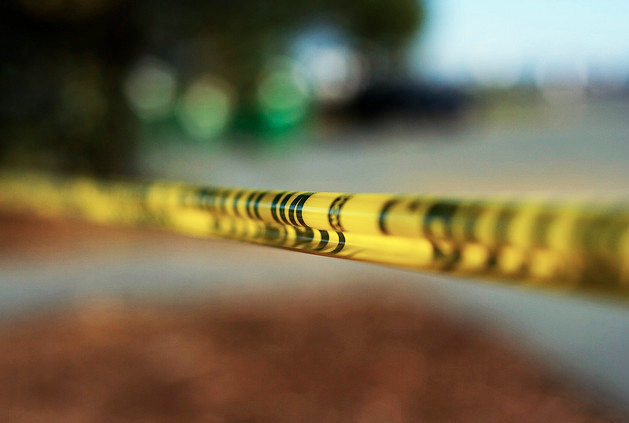From The Chicago Bureau:

Fanboy30 / Flickr / https://creativecommons.org/licenses/by-nc-sa/2.0/
Miles Harvey, a creative writing professor at DePaul University, worked with his students to interview Chicagoans impacted by violence. The resulting work is the book “How Long Will I Cry? Voices of Youth Violence."
In recent years, Chicago has regained the dubious title of having the highest murder toll in the nation, with more slayings than more populous New York City and Los Angeles. A large number of these murders are perpetrated by youth affiliated with gangs against their peers.
Miles Harvey, a creative writing professor at DePaul University, wants to see some change. In 2011 and 2012, Harvey’s students fanned out across the city to talk with people whose lives have been impacted by Chicago violence. What resulted was the book, “How Long Will I Cry? Voices of Youth Violence,” released last fall to critical acclaim. The Chicago Bureau reached out to Harvey to discuss his findings and his hopes for how change will take root in Chicago.
The Chicago Bureau: What inspired you to discuss this topic?

Author and DePaul University English Professor Miles Harvey
Miles Harvey: In 2009, there was this murder of Derrion Albert on the South Side of Chicago. There were these guys beating this kid – they were beating him to death with wooden planks. Some guy was filming it and laughing, and the video went viral all over the country. It really upset me. I’m a long-time Chicagoan and I kept thinking, “How could this happen in my city?” I wanted to see what was going on in these neighborhoods, and the project sort of grew from there.
The Chicago Bureau: Why is the book a compilation of narratives?
Harvey: My students and I felt there was something missing from the conversation about youth violence in Chicago, and we were right. We wanted to hear from people in these neighborhoods, and hear the stories of people who are deeply affected by this stuff. And, you know, there’s no judgment in this book. There’s a guy in it that served 18 years in prison for murder. But the stories talk about them as people, not only criminals. Narratives also make identifying with the subjects easier. Young people recognize themselves in these narratives. This doesn’t mean they should feel legitimized when they’re in gangs – it’s more just that these stories sound like their stories, and it shows them they’re not bad people. And when they see a story that has a similar voice to them and their friends, it makes them feel heard.
The Chicago Bureau: What was your methodology?
Harvey: The first step was for me to travel all over the city to find people to interview and gain the trust of the people in these communities. But also to find safe places for these interviews to take place – and that is for both sides. I mean, you can’t tell someone to come to a nice conference room in DePaul and then ask them about their gang life. You need to be there – that’s part of understanding where these young people come from. You have to make the people you talk to feel comfortable enough to speak frankly without worrying about being judged. The second step was going through the art of the interview. We spent a lot of time studying interviewing techniques. You know, it wasn’t easy for my students. There was a lot of border crossing. Chicago is still the most segregated city in the United States. It’s not only going into neighborhoods you’ve never heard of before, but it’s also doing stuff you never thought you could do. The students had to do a lot, but they really rose to the occasion. I was very amazed by the work they did. The next thing was editing the narratives, which I did along with some graduate students. There was a lot of collaboration.
The Chicago Bureau: What were some ethical dilemmas you faced?
 Harvey: An obvious one is that we didn’t want any violence to come out of our book. We made the decision early on to give our sources the option to use pseudonyms. And I have no regrets about it at all. You know, using fake names is controversial for good reason, but I think it didn’t matter in this case. Regardless of their names, these were real kids with real concerns. We’d much rather have them speak frankly about gang activity than not. The other big ethical concern was to try to make sure kids didn’t tell us too much. We didn’t want to get all the graphic details. It was unnecessary for us, but also we didn’t want them to relive those moments. I think the whole project itself was an ethical dilemma. With an issue like this, if you’re succeeding, you’re talking to people with complicated lives. But overall, given the subject matter, I thought the scope of ethical challenges we faced was relatively small.
Harvey: An obvious one is that we didn’t want any violence to come out of our book. We made the decision early on to give our sources the option to use pseudonyms. And I have no regrets about it at all. You know, using fake names is controversial for good reason, but I think it didn’t matter in this case. Regardless of their names, these were real kids with real concerns. We’d much rather have them speak frankly about gang activity than not. The other big ethical concern was to try to make sure kids didn’t tell us too much. We didn’t want to get all the graphic details. It was unnecessary for us, but also we didn’t want them to relive those moments. I think the whole project itself was an ethical dilemma. With an issue like this, if you’re succeeding, you’re talking to people with complicated lives. But overall, given the subject matter, I thought the scope of ethical challenges we faced was relatively small.
The Chicago Bureau: What has been the reaction to the book?
Harvey: It was pretty amazing – both in the media and in the neighborhoods all around the country. Several Ivy League school libraries requested copies, but also a lot of prison libraries requested copies. Everyone is asking for one. Since it came out, we’ve gone through 12,000 copies. We’ve had two printings and we’ll probably have a third printing soon. It’s just been an extraordinary experience. I think the reason why there’s a high demand for it is because this book has the ability to allow people to discuss this topic that is often the heavily armed gorilla in the room…especially in the segregated communities of Chicago – this book provides a way for people to do that. What my goal is for the book is for both people in wealthy and white areas to see the neighborhoods and people differently – and see how much humanity and hope are in these neighborhoods, as well as violence. But also people in these neighborhoods, especially kids, to see that there is a bigger world out there.
The Chicago Bureau: Why is the book free?
Harvey: In order to get this book, you basically have to write a story telling us why you want it. Every day, I hear why this book matters to people across the country. When a school says they hosted an assembly related to your book, and they want to order 100 more copies because their students were very interested in it – that’s a big deal. The biggest thing is spreading the word and learning more about the people in this city. Sharing these stories is the main point, and the profits will be reaped by society as a whole.
The Chicago Bureau: What impact do you hope this book will have?
Harvey: Can we change violence in Chicago? I don’t know. But I think bearing witness is in and of itself a powerful thing. I really feel blessed to have had the opportunity to help people think about this, if not anything else. I think the book gives people a tool to talk about this taboo subject. When kids read this book, they can suddenly find ways to talk about their own gang activity. And that’s an amazing thing. People will say to me, “Do you think you’re really going to change anything?” Well, first of all I think I am convinced that stories can change things and that stories can save lives. I know we’ve affected kids for the better. I think we really are starting to make a difference. Murders in the city went down a year after we did all this. I wouldn’t presume to say that we were responsible for that. I think policing techniques and other factors had to do with it. But I think we played a role in calling attention to it. I think you can change peoples’ lives through stories. It may be one person at a time, but we are still having an impact.
The Chicago Bureau: How can we reduce youth violence in Chicago?
Harvey: There are so many disparities in this city. And I think we have to make the education system better and we have to find ways to get jobs into these communities. It’s these big picture, structural things. We need to make sure these kids get a fair education – but they’re not right now. And I personally don’t have concrete solutions for them. However we do it, we have to give them a fairer shake than they’re getting now. People in these neighborhoods also have to change. Liberal and conservative arguments both have their points. These kids also have to try to pull their lives together. If you have real educational and economic opportunities to find family and community – other than street gangs – you’re not going to join street gangs. And I think we need gun control. And drugs also play a huge issue. There are just so many different factors that need to be addressed. But this isn’t going to be solved instantly. There’s no magic bullet. One of our big goals with the project was that, although there are no easy solutions, these stories in this book belong to all of us – not just the kids in those communities. It’s all of our stories, all of our problems. And we need to fix them.
The Chicago Bureau: What other similar projects do you have lined up?
Harvey: “How Long Will I Cry” is our first book under the new publishing company we started here at DePaul, called Big Shoulders Books. Basically, we are trying to put out books about people from parts of the city that otherwise wouldn’t have a forum. Our first such book is “How Long Will I Cry.” Our second book is also giving young people a voice – but it’s a different kind of voice and in a different kind of forum. We’re partnering up with 826 Chi, which is this fun tutoring center in the city where kids learn writing skills. The book will just be a bunch of writing pieces from several types of kids in the city. A third project we’re working on is one where we’re talking to some veterans in Chicago to get their stories out in poetry form. In general, what we’re aiming to do is give a platform to hear unheard voices in Chicago. We want them to be these beautiful books that people really feel like they have value.
This story produced by the Chicago Bureau
